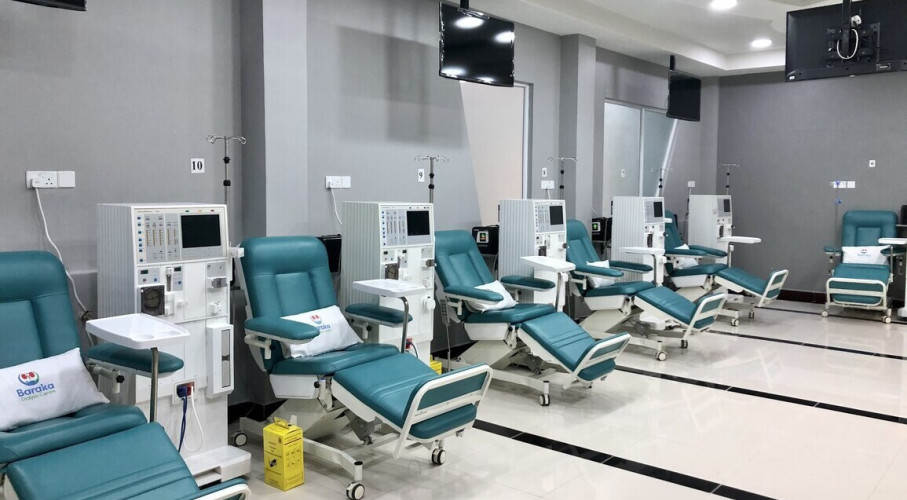Emergency care is a cornerstone of a well-functioning healthcare system, designed to provide immediate attention to life-threatening situations such as accidents, strokes, heart attacks, acute infections, and trauma. Unfortunately, in Nigeria, the ability to effectively respond to emergencies is severely constrained by a lack of adequate infrastructure, insufficiently trained personnel, and the absence of specialized emergency units in many healthcare facilities.
The lack of timely access to emergency medical services in Nigeria has led to thousands of preventable deaths annually. Whether it’s a road traffic accident, a cardiac arrest, or an acute illness requiring immediate intervention, many patients do not receive the care they need in time. This gap in emergency care preparedness significantly worsens clinical outcomes, contributing to higher morbidity and mortality rates.
The World Health Organization (WHO) and global health experts emphasize the critical role of emergency care systems in achieving universal health coverage and reducing avoidable deaths. In response to these gaps, the Hospital Emergency Clinic Project seeks to establish a state-of-the-art emergency response facility designed to provide high-quality, rapid, and effective care to critically ill and injured patients. This facility will be built to international standards, ensuring that timely interventions are available 24/7 to improve survival rates, reduce complications, and save lives.

The Hospital Emergency Clinic Project seeks to establish a state-of-the-art emergency response facility within a hospital setting. This clinic will be designed to meet global standards for emergency care delivery, offering rapid triage, stabilization, and treatment of critically ill or injured patients. The Emergency Clinic would function as follows;
24/7 Operation: The clinic will operate round-the-clock, staffed by emergency physicians, trauma specialists, and trained nurses to manage a broad spectrum of medical crises.
Triage and Resuscitation Bays: Equipped with defibrillators, ventilators, monitors, and rapid diagnostic tools to stabilize patients upon arrival.
Ambulance Support and Transfer Protocols: Coordinated pre-hospital and inter-hospital transport services for timely patient transfers and referrals.
Short-Stay Observation Units: For patients requiring monitoring or short-term medical support without full hospital admission.
Disaster and Mass Casualty Preparedness: The clinic will include protocols and infrastructure to respond to public health emergencies and large-scale incidents.
By improving emergency care capabilities, this project will enhance the overall resilience of Nigeria's healthcare system. Hospitals will be better equipped to manage critical cases, leading to improved patient outcomes across various departments and reducing the burden on tertiary care centers.
The emergency clinic will provide timely and effective interventions for patients experiencing life-threatening conditions. By offering immediate triage and stabilization, the clinic will directly contribute to reducing the number of preventable deaths resulting from trauma, strokes, heart attacks, and other acute illnesses.
The establishment of the emergency clinic will create numerous employment opportunities for emergency physicians, trauma specialists, nurses, paramedics, support staff, and administrative personnel. In addition to creating new jobs, the project will provide ongoing training and professional development, ensuring that healthcare workers are equipped with the latest knowledge and skills in emergency medicine.
The clinic will be equipped to handle mass casualty events, natural disasters, and public health emergencies, ensuring that Nigeria's healthcare infrastructure is better prepared to respond to large-scale crises. This will bolster national and regional emergency preparedness and ensure that hospitals are equipped to handle both routine and catastrophic situations.
Establish a State-of-the-Art Emergency Clinic
Set up a fully functional emergency clinic equipped with modern diagnostic tools, resuscitation equipment, and specialized treatment bays designed for trauma, cardiac care, stroke management, and acute illness.
Recruit and Train Emergency Care Personnel
Assemble a dedicated team of emergency physicians, trauma specialists, paramedics, nurses, and support staff. This team will undergo specialized training in emergency response protocols, critical care procedures, and disaster management.
Ensure Integrated Patient Transport Systems
Implement an ambulance service and transport protocols for pre-hospital and inter-hospital transfers to ensure that patients can be quickly and safely moved to the emergency clinic or referred to higher-level care facilities when necessary.
Implement Disaster and Mass Casualty Protocols
Prepare the emergency clinic to handle large-scale public health emergencies, natural disasters, and mass casualty incidents by developing disaster management plans, training staff, and equipping the clinic with emergency supplies.
Promote Public Health Education and Awareness
Launch an outreach program to raise awareness about the availability and importance
Engineering National Prosperity